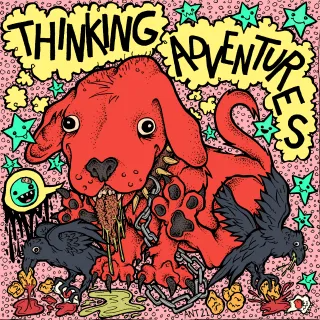NSR:
Love Swyvers; currently have 3 groups in the same city which is a total blast. Do you have any media to watch/read/play where I can get more of those delicious grimy Smoke vibes? Do you personally imagine The Smoke as Victorian, Tudor, or a mix of both? Do you have any tips for writing adventures for it? Thanks!
Luke:
i think of the smoke are more medieval - but it’s extremely anachronistic so you can have more or less of any of those elements as per your own taste.
terry pratchett had a huge influence on me growing up, especially the Vimes series. the smoke is a ankh-morporks nastier cousin with bad tattoos.
the early Thief games also fucked my brain up as a kid, so those are really worth playing. you could probably steal a few of those missions and run them as a bigger heists.
i think a lot of swyvers is rooted in the experience of growing up outside of london. there’s all these towns and smaller cities falling into the gravity well of London, which sucks up all the money, all the wealth, all the people. it’s actually a huge problem - the north of england is drained dry of investment by this process. i live down south, but still outside of london. visiting it as this huge place full of extreme wealth and poverty made a big impression, as well as the amount of history openly on display. london is always being rebuilt, but the bones of the many londons before are always on display. it’s a weird one, but the book Liquid City by Iain Sinclair & Marc Atkins gets at some of this.
swyvers is written to be pretty sandboxy - just lean on the stuff you generated in the districts to guide you (and your players) in finding targets. as normal, think about things as places, this isn’t an adventure locale, it’s somones house, it’s a jewellers shop, it’s a prison. for security measures, give the guys a “competence rating” out of 10. whenever you spot a security hole in the design, roll the d10 - if its on or under, they spotted the flaw and have some kind of mitigation in place - otherwise, it’s still there.
